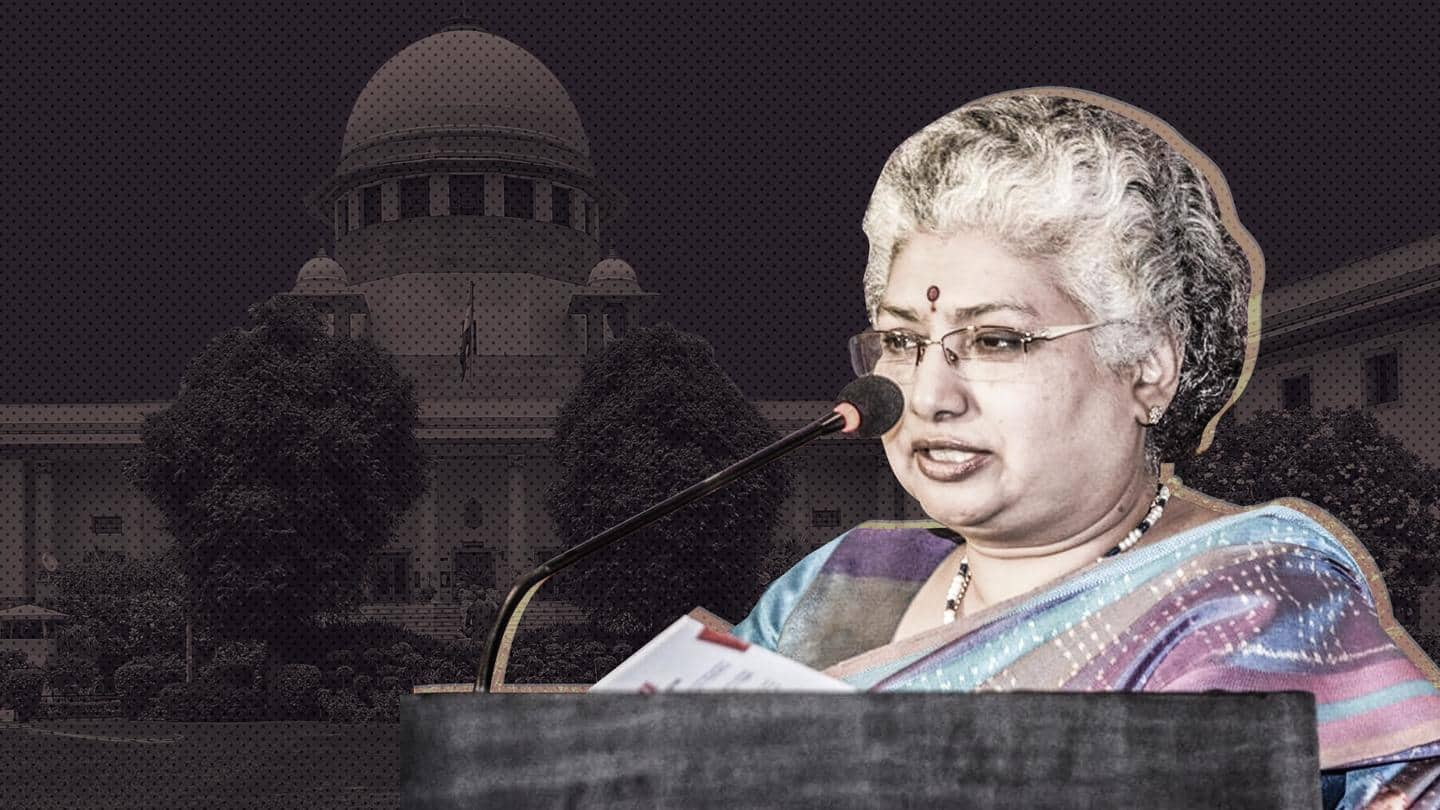
India could get its first woman CJI in 2027
What's the story
India is likely to get its first woman Chief Justice (CJI) around six years from now.
The Supreme Court Collegium has recommended nine judges for elevation to the top court.
They include Justice BV Nagarathna, presently a judge with the Karnataka High Court, who, if approved, will become the country's first-ever woman judiciary chief in 2027.
Details
Who is Justice BV Nagarathna?
Justice Nagarathna had started her career as a lawyer in Bengaluru.
She was appointed as an Additional Judge in the High Court of Karnataka in 2008 and made a permanent judge two years later.
If approved for the post of CJI, she will likely have a month-long tenure in 2027.
Her father, ES Venkataramiah, was the CJI for six months in 1989.
Information
2 other women also recommended for elevation
Besides Nagarathna, the SC Collegium has picked two other women as recommendations for elevation. They are Justice Hima Kohli, who is the Chief Justice of Telangana High Court, and Justice Bela Trivedi, currently serving as a judge in the Gujarat High Court.
List
Who are the others recommended by the Collegium?
The six other names finalized by the Collegium include Justices Abhay Shreeniwas Oka (Chief Justice of Karnataka HC), Vikram Nath (Chief Justice of Gujarat HC), Jitendra Kumar Maheshwari (Chief Justice of Sikkim HC), CT Ravikumar (a judge in Kerala HC), and MM Sundresh (a judge in Kerala HC).
Senior advocate PS Narasimha is the Collegium's choice for direct appointment from the Bar.
Other details
SC has seen eight woman judges till date
Presently, Justice Indira Banerjee is the only woman judge in the Supreme Court. She is set to retire in September 2022.
There have notably been only eight women judges in India's apex court till date.
Several top judges, including former CJI SA Bobde, have said it is time for the country to finally have a woman Chief Justice.
Collegium
What is the SC Collegium?
The SC Collegium is an appointment panel led by the Chief Justice of India and comprises four other senior judges.
Presently, it comprises CJI NV Ramana, and Justices UU Lalit, AM Khanwilkar, DY Chandrachud, and LN Rao.
Their recommendations will now be considered by the Union Law Ministry, which has the option of sending the list back to the Collegium for review.